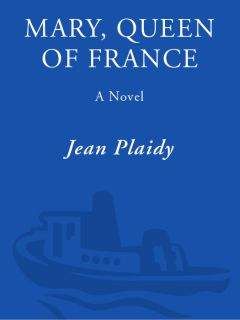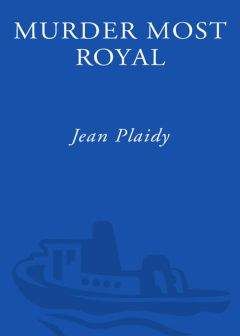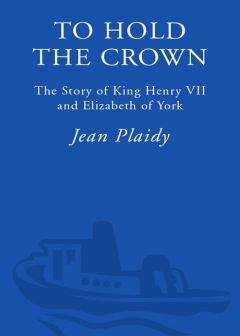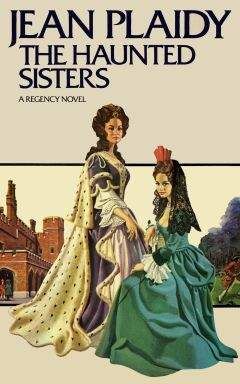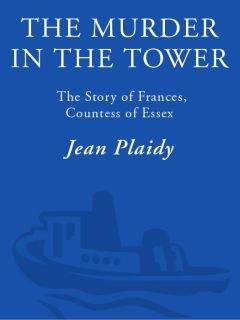Jean Plaidy - The Sixth Wife: The Story of Katherine Parr
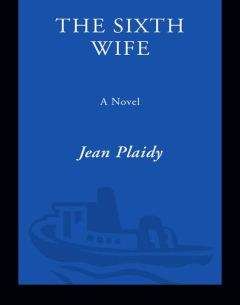
Помощь проекту
The Sixth Wife: The Story of Katherine Parr читать книгу онлайн
She could not sleep. She lay, conjuring up more pictures of their lovemaking until the dawn came.
She was at the window, watching his hasty departure.
THE LORD HIGH ADMIRAL sought audience with the King at the palace of White Hall. This His Majesty was very willing to grant.
“A good morrow to you, my Lord Sudley,” said the King.
The Admiral bent low and kissed the little hand. Then, lifting his face which was turned away from the King’s attendants, he slowly closed one eye and almost imperceptibly jerked his head. The little King’s face flushed with pleasure. Uncle Thomas meant: Let us be alone together.
There was nothing that would please Edward more.
“I would be alone with my uncle,” he said. “Pray leave us.”
He looked fearfully at his attendants as though he suspected that they might refuse; but there were no gentlemen of great importance among them at that moment to offer that advice, proffered ingratiatingly and yet in such a manner as to imply that His Majesty—for all his titles—was but a child, and a child who was in duty bound to obey his ministers.
When they had gone, Thomas said: “And how fares the King?”
“He was not feeling well until the Lord High Admiral called to see him. That lifted his spirits mightily.”
“My dearest nephew!”
“Uncle Thomas, it is long since I have seen you.”
“You are so guarded now, continually surrounded by your counselors. There seems hardly room for poor Uncle Thomas.”
“There is always room for Uncle Thomas.”
“Tell me, what money does Your Grace need?”
“I will show you. I have written out what I need and what I owe.”
“Then let Uncle Thomas take care of that.”
“Dear Uncle, it seems so strange. I am a King, and yet I have to do what I am told. I am kept short of money, and I have my tutors who call me ‘Majesty’ and yet hint at stern punishment if I fail in my duties.”
“Be of good cheer. To be a King is a great honor. But more so when the King is no longer a boy. Now if you were a man like myself or like your father…”
“How I wish I were! Yes… like my father, so that I only had to raise an eyebrow to have everyone trembling. How fares my mother? Have you seen her? It seems long since I have. I often think of the days when she would spend long hours with us…my sister Elizabeth and Jane Grey… while we were at our lessons. I miss them all sorely.”
“They are all well. They miss Your Majesty.”
“It seems a sad thing to be a King and not to have those you love about you. Oh yes, I would I were like my father.”
“Marry! He was a boy once. Soon your boyhood will be over, dear Edward. You will be a man; you will marry a wife…and, if you are like your father, mayhap six.”
The little King smiled sadly. “One would suffice for me.”
“You are wise, dearest Majesty. I myself would be happy with a wife, I am thinking.”
“It surprises me that you have not one. You are no longer young and, from all I have heard, the ladies are fond of you.”
“My lord King, if you were to command me to marry a wife, then I should have no excuse for remaining single.”
“I? Command you? Dearest Uncle, what do you mean?”
The Admiral’s eyes were alert. He loved the boy; indeed he did; and he was enjoying this moment. He had committed a great indiscretion. He had married the Dowager Queen, although her husband had been dead little more than three months. It was, to say the least, a great breach of court etiquette; he was not sure that it would not be regarded as a crime. The Council would be furious at his conduct, and he needed the approval of the King.
“If you were to choose a wife for me, whom would you choose? Think carefully, dearest nephew. When I was your age I used to imagine the people I loved best, married to one another. Just tell me; if you could pick a bride for me, on whom would you decide?”
Edward smiled. Like many whose minds are heavily burdened with learning, his humor was a little childish. He shut his eyes.
“I must think of a lady of your own age,” he said. “The lady must be one whom I love as much as I love you. There is only one grown lady whom I love as I love you.”
“Then you should command me to marry her, Sire.”
“How can I do that, my lord?”
“You are the King. Your Majesty has only to command. Tell me her name, Sire.”
“It is my stepmother, the Queen.”
“But…I love her. How did you know? Your Majesty, you are most astute! If I might choose from all the ladies in this land…nay, in all the world, I would choose Queen Katharine. So Your Grace commands me to marry her?”
“Yes,” said the King. “I do.”
Seymour knelt and kissed his hand.
“And none dare disobey the King’s command!” he said with a wink, and they laughed together.
“I shall be glad,” said Edward, “when I have a wife.”
“I know the very one for you. I know the lady of your choice.”
“Who then?”
“The Lady Jane Grey.”
“I love her dearly,” admitted Edward. “It would be wonderful to have her with me always. I am so lonely sometimes.”
“I cannot command Your Majesty to marry, as Your Majesty commands me.”
“But if you could, Uncle Thomas, would you command me to marry Jane?”
“I would, dearest nephew. But as I cannot, I will do everything within my power to bring about the match.”
“How will you do that?”
“As yet I cannot say. But, by God’s precious soul, I will do my utmost. There! You have my oath on it.”
They laughed together and the pleasant interview continued until some of the King’s ministers demanded an audience.
Seymour left, promising the King to return soon. He was pleased with the results of his little game. He had received the King’s consent to his marriage; and it would certainly be in the interests of the Reformed Party, to which, for political reasons the Seymours belonged, to have the King married to Lady Jane Grey, for little Jane had been brought up in the reformed faith, and the Catholic influence must be suppressed.
Seymour’s thoughts were merry as he rode to Chelsea to spend the night with his wife.
WHEN THE COURT HEARD the news of the marriage of the Dowager Queen and Lord Sudley it was deeply shocked.
Both the Admiral and the Queen were in disgrace.
This was the worst breach of royal etiquette since Mary Tudor, Henry’s sister, had married Charles Brandon, Duke of Suffolk, in such haste after the death of her husband, the King of France. It was remembered that Henry the Eighth had married Katharine Parr quite as soon after the death of Lord Latimer, but he was a King and all-powerful. Such as the Admiral and Katharine Parr should be taught that they could not take the law into their own hands.
Seymour pleaded that he had the King’s consent.
Edward said with dignity that this was so. He had desired the marriage; and, supported by and supporting the two people he loved so dearly, he took on new dignity and authority. He was the son of his father when he told the Council that he approved of the marriage and that it would be as well for the gentlemen to remember that he was their King.
The most furious person at court—with the exception of Elizabeth, who had taught herself to keep quiet when it was necessary to do so—was Anne Stanhope, Duchess of Somerset, the wife of the elder Seymour brother.
She had hated Katharine Parr ever since the death of the King.
It was ironical, she declared, it was ridiculous that the woman should take precedence of her. She was the wife of the Protector, the true governor of England; and because of Katharine Parr’s marriage to the late King, she was the first lady in the land. The Duchess recognized that the Princesses Mary and Elizabeth, and the King’s divorced wife, Anne of Cleves, must have precedence; that was understood. But that Katharine Parr, who was now but the wife of her husband’s younger brother, should do so, was monstrous.
She faced her husband when she heard the news and, though fully acquainted with her turbulent moods, never had Edward Seymour seen her so furious.
“The Dowager Queen!” she cried. “And who is this Dowager Queen? Katharine Parr! King Henry the Eighth married her in his doting days when he had brought himself so low by his cruelty and his lust that no lady of honor would venture near him. And I … I, my lord, must give place to her! Once she was Latimer’s widow; now she is the wife of your brother…your young brother…and yet she is placed above me. Methinks we shall have to ask Master Admiral to teach his wife good manners. And if he will not, then I swear I will.”
The astute Protector, both calm and cold, ever ready to see an advantage and be on the spot to take it a second or two before a rival could do so, was yet gentle with his Duchess.
“Anne,” he pleaded, “be calm. Nothing can be done at this moment. You must accept this state of affairs. She has married Thomas, and, no matter what we do, we cannot prevent that.”
“Do you not see that your brother Thomas has done this that he may become more powerful than you are?”
“I am watchful of him,” he answered serenely.
“With the Queen his wife, and the two of them preparing to mold the King, what might they not do?”
“The King is in our care. Thomas may be his uncle, but so am I. And I am the elder.”
“You have been sterner with him than Thomas has. Thomas has bribed him with gold, and bemused him with charm. Beware of your brother.”
“I am wary, dearest Anne. I am ever watchful. Thomas knows how to charm people, but there his accomplishments end. He is a fool, that brother of mine.”
“His charm has brought him much. It has already brought him the Queen.”
“I fear neither Thomas nor his Queen. I and my Duchess will be a match for them.”
She smiled. They were together in all things, bound by affection and ambition. To her he was not cold and ruthless; to him she was not proud and haughty.
“My dear,” he said, “this matter of marriage has set me thinking. What would you say to our daughter Jane’s marrying the King? It would not be the first time a Jane Seymour sat upon the throne.”
The Duchess flushed with pleasure. “Our daughter…Queen of England!”
He kissed her cheek.
“You would like that, eh? And what do you say to the Lady Jane Grey for our son?”
She seized his hand and pressed it. “Our daughter a Queen!” she repeated. “Our son married to one who is not so very far from the throne. My lord husband, there are glorious days ahead for us.”
“There, my love, you see we are doing well. Do not let us begrudge Thomas his Queen.”
She looked momentarily grave. “He has his Queen; he has his influence with the King; and our daughter is not yet Queen of England, our son not betrothed to the Lady Jane Grey. Methinks that Thomas should be shown he cannot flout the Protector’s authority.”
“How should we show our displeasure?”
“By confiscating all the jewelery which King Henry gave to Katharine Parr. It is not in truth her property now, because it belongs to the crown; and you, as Protector, are responsible for it.”
He looked at her slyly. “Much of it would become you, my dear.”
“That it would! But I could not wear it—and should your younger brother’s wife be adorned with jewels that I may not wear?”
He put his arm about her waist. “Why, indeed,” he said, “should my brother’s wife wear jewels which mine cannot!”
TO SOME IT MIGHT have seemed difficult to concentrate on lessons; this was not the case with the young Elizabeth. Hurt and humiliated she had been, but there were times when she could completely banish that humiliation from her mind. She could welcome what had happened with Seymour as an experience from which she could learn much; and one thing she had learned was that no amount of study could give a Princess that knowledge of human nature which was perhaps more desirable than any other. A good understanding of the people would be the first requirement of one who planned to rule them.
So, even while she wept, while she gave herself up to silent rages, she could not be altogether angry with the newly married pair.
She was determined to face the truth. Katharine was in love with Thomas Seymour, and she did not see him as the avaricious philanderer; therefore it would be folly to feel anger against the Queen. As for Thomas, he was still Thomas; and she had never believed him to be a saint.
She must be calm; she must try to understand the motives behind people’s actions, she must therefore welcome all experience, however bitter.
Her servants were her friends; she had never to ask them in vain for any special service. Her appealing youthfulness, her dangerous position, that troublous childhood through which she had passed, touched them deeply and bound them to her. Moreover, although she could at times be more imperious than any, she could also show the utmost familiarity. She was loyal to them and defended them always if they were in any trouble. These qualities bound them to her, and if she knew the secret of the bonds, that did not make them less secure.
Her cofferer, Thomas Parry, had not hesitated to betray the Admiral to her. When the news of Thomas’s marriage to the Queen was bruited abroad, Parry had looked sly, and Elizabeth, sensing this, demanded to know why.
“My lady Princess,” said Parry, “he has married the Queen, but to my mind he was hoping for the Princess.”
She could not hide her satisfied smile. “Master Parry, why do you say that?”
“It is because of what happened the day after the King’s burial.”
“And what was that?”
“My Lord Admiral sought me out and put to me many questions concerning your ladyship.”
“Questions! And how dared you discuss me with the Admiral!”
“’ Twas not your ladyship so much as your possessions, and doubtless he thought I would be the person most fitted to inform him in such matters.”
“My possessions!”
“Yes, he would know what lands and estates were yours, and methinks he was well pleased with what was coming to you.”
The Princess’s eyes narrowed and she laughed immoderately.
“The Admiral is a very cautious man, Tom Parry.”
“Indeed, yes, my lady. But methinks he has a fondness for your person which equals that for your lands.”
“My stepmother’s possessions were greater than mine, and her person more charming?”
She waited, and Parry, being so fond of her, could not disappoint her.
“The possessions, yes, my lady; but how could the charms of a middleaged lady compare with those of a young girl… and a young girl who …” He paused.
“Who…? What were you about to say, Master Parry?”
“A young girl who is acknowledged to be a beautiful Princess.”
She held her head very high. “But you flatter me,” she said. “I did not come to you for flattery.”
Then she left him, and Parry looked after her, smiling. She could not deceive him. He had seen the heightened color, the flash of her eyes. He judged that if she had refused my Lord Admiral—as Kat Ashley had told him she had—she had been in two minds about him. Seymour was a man who knew how to charm the women.
